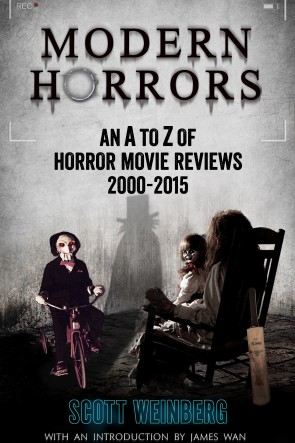Exclusive Review: NIGHTBREED: THE DIRECTOR’S CUT (2014){0}
Aaron Boone (Craig Sheffer), bemulletted and dressed as though he just stepped out of a Tom of Finland photograph, has been having dreams, about a place called Midian, “where the monsters live.” His former psychiatrist, Dr. Decker, is most interested to hear about Boone’s nocturnal imaginings, not because of any professional interest, but because Decker is a rapacious serial killer, who sees Boone as the perfect patsy, to take responsibility for his own heinous crimes, and convinces his former patient that he is guilty, giving him six hours to turn himself into the police. Instead, Boone finds his way to the fabled netherworld of his dreams, where the denizens accept him as one of their own.
Written and directed by Clive Barker, from his novel Cabal, Nightbreed was released in 1990, at a point when the Liverpool-born author, still in his thirties, was the enfant terrible of horror (Stephen King famously called him “the future of horror”), thanks to his startling collection The Books of Blood, the Faustian novel The Damnation Game (1985), and the epic dark fantasy Weaveworld (1987) and The Great and Secret Show (1991), not to mention his directorial debut, Hellraiser (1987), which has since spawned umpteen sequels (none of them a patch on the original) and an imminent reboot.
Nightbreed‘s arrival in cinemas coincided with Barker’s evolution from the ground-breaking ‘splatterpunk’ stories that made his name into doorstep-sized dark fantasies, often with maps in the front. The film was a critical and commercial disappointment, for which Barker blamed his producers at Morgan Creek, claiming they had slashed the film up like one of Decker’s victims. The excised scenes were thought lost until about five years ago, when they began to emerge from a number of different sources, resulting in the festival-screened version dubbed The Cabal Cut, and culminating in The Director’s Cut, supervised by Barker himself, and newly released on the Scream Factory label. In the 24 years since it was made, Nightbreed has gained something of a cult following, but for those who found the original resistible, the only question worth asking is, is Barker’s final cut any better?
Nightbreed always had a lot going for it: Barker’s weird and wonderful imagination, a menagerie of monsters designed by Ralph McQuarrie (an appropriate choice, given that Barker had set out to make “the Star Wars of horror movies”), a score by Danny Elfman (fresh from Tim Burton’s Batman), and a chilling performance by David Cronenberg as the sociopathic psychiatrist. (Although Hannibal Lecter had somewhat stolen Philip Decker’s thunder a year earlier, for my money Cronenberg’s is the better performance – but then, I always preferred Brian Cox’s subtle Lecter in Manhunter to Hopkins’ scenery-chewing in The Silence of the Lambs). Nightbreed also had a few things against it, notably charisma-vacuum Craig Sheffer’s unsympathetic leading man (compare him with, say, Twin Peaks‘ Bobby, who appeared the same year in more or less the same clothes), and Anne Bobby’s limp performance as his drip of a girlfriend.
The Director’s Cut has the same strengths and weaknesses as the earlier version: it’s 20 minutes longer (a few deleted scenes have been reinstated), and 40 minutes different (numerous other scenes have been tweaked and re-edited), but the changes do little for the film as a whole, other than to satisfy the curiosity of those who have waited nearly a quarter century to see if Barker’s own cut of the film was a significant improvement over the original. Sadly, it isn’t.
Only dyed-in-the-wool Nightbreed fans (who must exist, given that Scream Factory’s limited edition Blu-ray sold out in pre-orders) will even notice the additional and amended scenes, and might to admit they don’t add much to the overall picture. Everyone else is likely to be as disappointed and disillusioned as they were the first time round, and might be given to wonder, in the manner of someone looking at Clive Barker’s body of work over the last two decades, what all the fuss was about.
★★★








